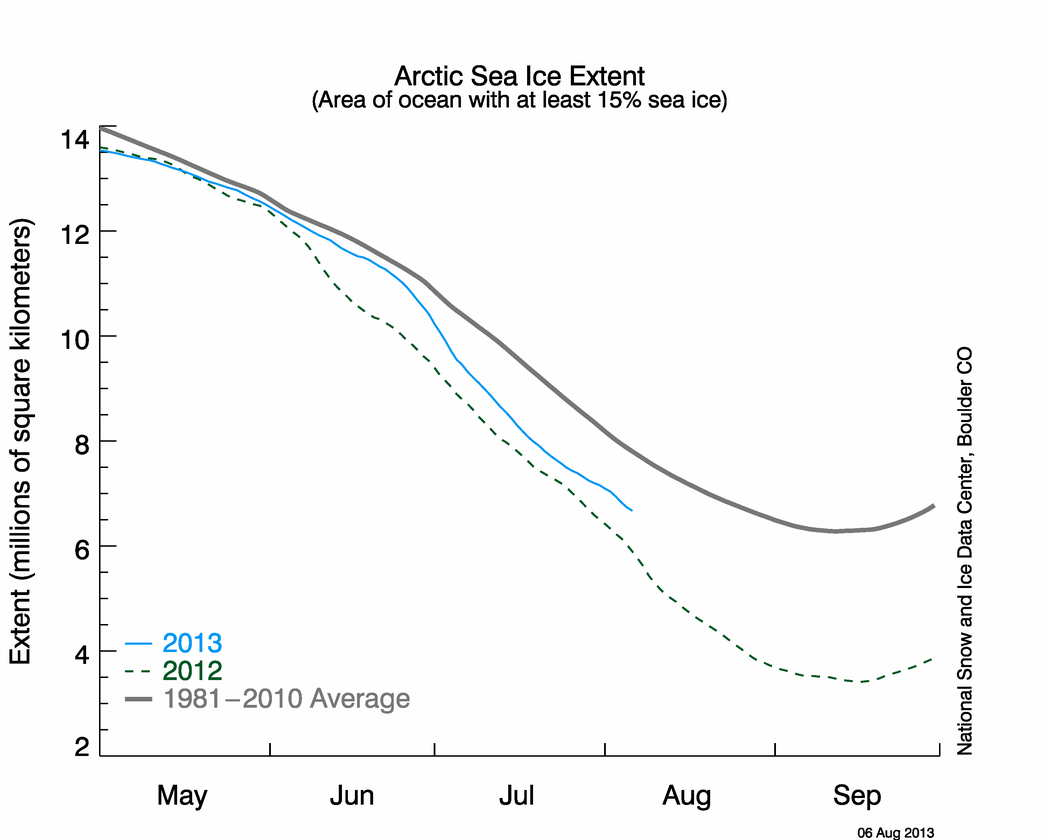Juan Albion
Chicken Sniffer 3rd Class
I read recently that scientists are saying there is a 50/50 chance that there will be no ice at the North Pole in September.
Exclusive: Scientists warn that there may be no ice at North Pole this summer - Climate Change, Environment - The Independent
Exclusive: Scientists warn that there may be no ice at North Pole this summer - Climate Change, Environment - The Independent

